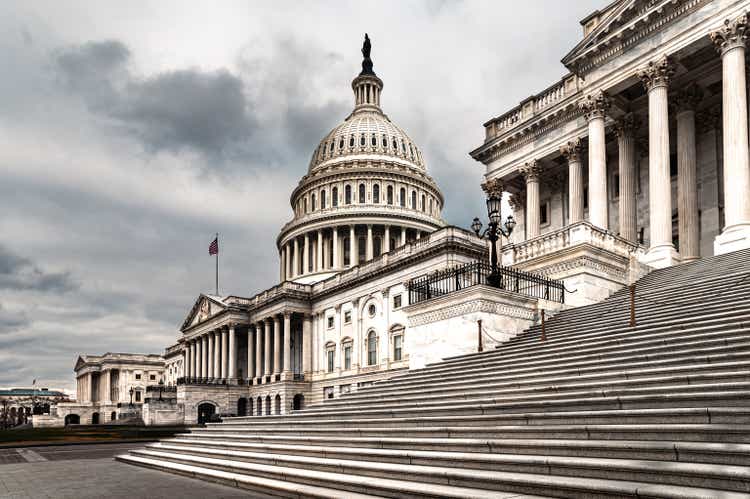Michael Müller/iStock through Getty Photographs
President Joe Biden signed the momentary funding invoice that retains the federal authorities working for at the very least two extra months on late Thursday, giving Congress extra time to hash out the federal government’s price range for the remainder of its fiscal yr.
The federal government’s funding had been poised to expire at Friday at midnight. It is the second time that Congress has handed a brief spending invoice for this fiscal yr, which began on Oct. 1, and brings the work of negotiating a price range into an election yr.
Underneath the newly signed laws, transportation, navy development, veterans’ advantages, housing, city improvement, agriculture, the Meals and Drug Administration, and vitality and water packages are funded by way of Jan. 19, 2024. The remainder of the federal government, together with protection, can be funded by way of Feb. 2.
The stopgap plan, known as a unbroken decision, was handed with votes from each Republicans and Democrats. However not all members of each events supported the momentary spending invoice that saved funding at present ranges. Some Republicans have been pushing for deep spending cuts, each for the persevering with decision and the extra everlasting appropriations payments.
The momentary spending invoice did not embrace the help for Ukraine and Israel that the White Home had requested, nor did it embrace the immigration and border management provisions that some Republicans needed. The emergency spending for Ukraine, Israel, and different supplemental requests is anticipated to be addressed when Congress returns after the Thanksgiving recess.
In Friday buying and selling, the U.S. Greenback Index (DXY) edged down 0.2%, and the 10-year Treasury notice (US10Y) rose, pushing its yield down 2 foundation factors to 4.41%. iShares 20+12 months Treasury Bond ETF (NASDAQ:TLT) gained 0.7% in premarket buying and selling.
Pricey readers: We acknowledge that politics typically intersects with the monetary information of the day, so we invite you to click on right here to hitch the separate political dialogue.

